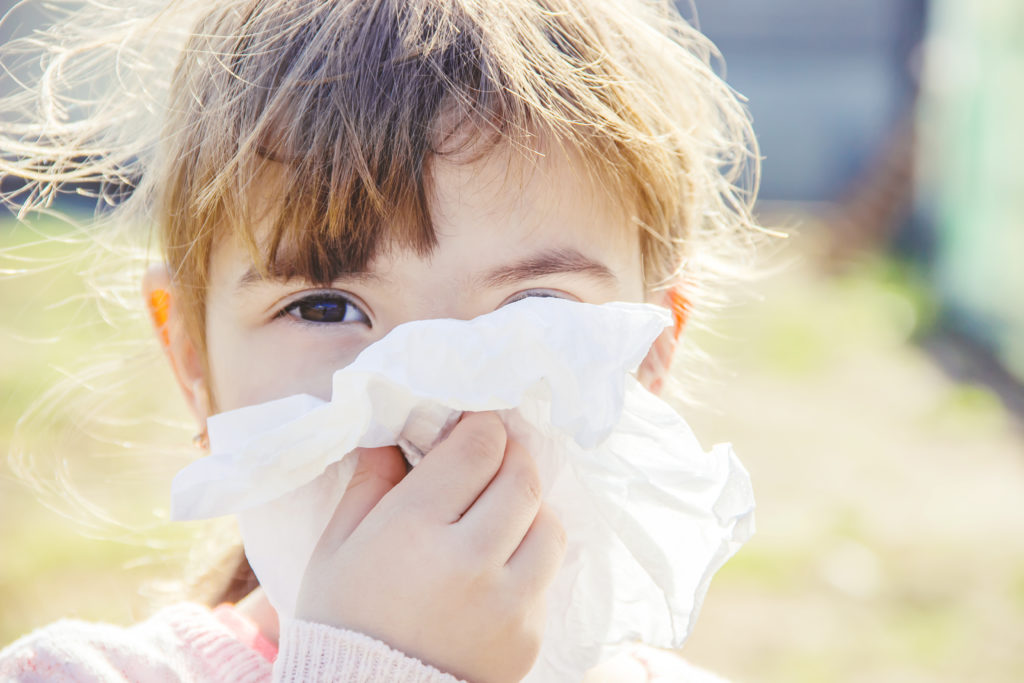Whenever we hear about the flu season, we immediately think of cold, rainy winters and sitting by the fireplace in heavy clothes with a box of tissues within arm’s reach. However, this is not always the case. You can get influenza or experience flu symptoms at any time of the year.
The flu is a highly contagious respiratory illness caused specifically by influenza viruses, which can affect you whether it is summer, spring, fall, or winter. However, it is extremely unlikely to get the flu in the spring or summer if you are not exposed to the virus. This is why many of those who get the summer flu may have recently traveled abroad as the flu is constantly circulating in some part of the world all the time. However, if you haven’t been abroad your flu-like symptoms may be due to another illness. It is important to be aware of the differences between the symptoms of each illness and consult a doctor for proper diagnosis and treatment.
The Flu
The flu is normally spread by the coughs and sneezes of an infected person. The duration of contagiousness in adults is around one to two days before the symptoms appear and up to seven days after becoming ill.

Influenza and Travel
As mentioned, it is unusual but not impossible to catch the flu during late spring and summer especially while travelling abroad. Pay close attention to symptoms once they arise because different illnesses are predominant in different parts of the world. For an accurate diagnosis, make sure that your doctor knows that you have been abroad. Your doctor may run some tests to rule out any other causes for your symptoms and determine whether you have influenza or something else.
Symptoms of influenza include fever, cough, headaches, chills, fatigue, nasal congestion, and some people may experience vomiting and diarrhea. These symptoms, especially a recurring cough, may be extremely discomforting when you have the flu.
Consider relieving your cough with Prospan®, the number one herbal cough syrup in the world, which alleviates the coughing symptom without interacting with any medications that may have been prescribed by the doctor for your flu.

If you do have the flu in the summer, then it will likely take you between three days and two weeks to get better. It is advised to avoid direct contact with others and stay home to avoid spreading the influenza virus to other people. In some cases, you or your loved one could potentially be at a higher risk of developing complications as a result of the flu. People over the age of 65, young children, pregnant women, and people with asthma, diabetes, heart disease, may be at higher risk.
Stomach Flu
An illness that is most often incorrectly referred to as “the flu” is gastroenteritis (also inaccurately referred to as “stomach flu”). Common year round, gastroenteritis causes vomiting, diarrhea, fever, and leaves you feeling horrible for a few days. It is not related to influenza, the actual flu, in any way.
While the flu caused by the influenza virus is primarily a respiratory illness, the “stomach flu” is usually caused by a different virus that attacks the intestinal tract and causes swelling and discomfort. It can also be caused by bacteria, spoiled or contaminated food, a side effect of a medication, or other more serious illnesses.
Flu-Like Illnesses
If you’ve been experiencing flu-like symptoms and it isn’t the flu season, then you may be down with another viral illness that isn’t influenza. Flu-like illnesses can make you miserable but are less likely to cause severe symptoms and complications.
In the slim possibility that you are diagnosed with influenza during the summer, there are some steps that you can follow to relieve the symptoms and make you feel more comfortable.
- Stay at home
- Rest in bed and keep yourself warm
- Consume plenty of liquids to avoid dehydration
- Stop smoking
Nutrition plays a great role in your recovery. Consider eating foods that will provide your body with the necessary nutrients to help you get better:
- Broth is one of the best things you can eat when you have the flu whether it is chicken, beef or vegetable broth. It will prevent dehydration and relieve congestion.
- Garlic, Yoghurt, Vitamin C-containing fruits, and leafy greens may help relieve your symptoms due to their immune-enhancing effects.
- Oatmeal. A hot bowl will help soothe you in times of sickness while providing your body with the nutrients it needs and speeds up your recovery.

